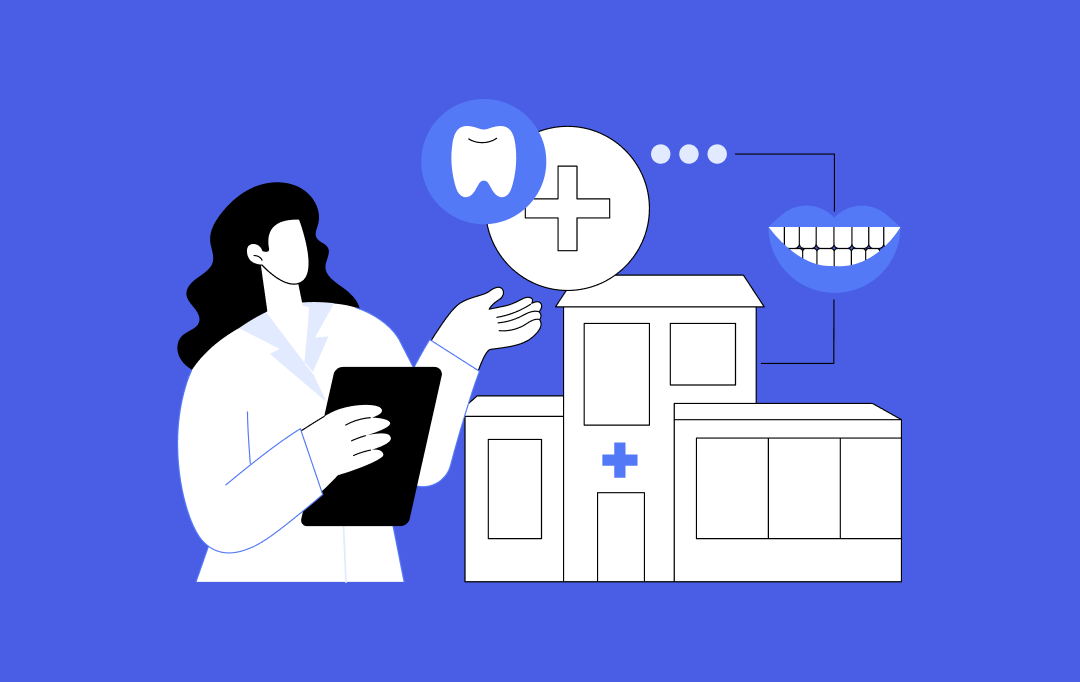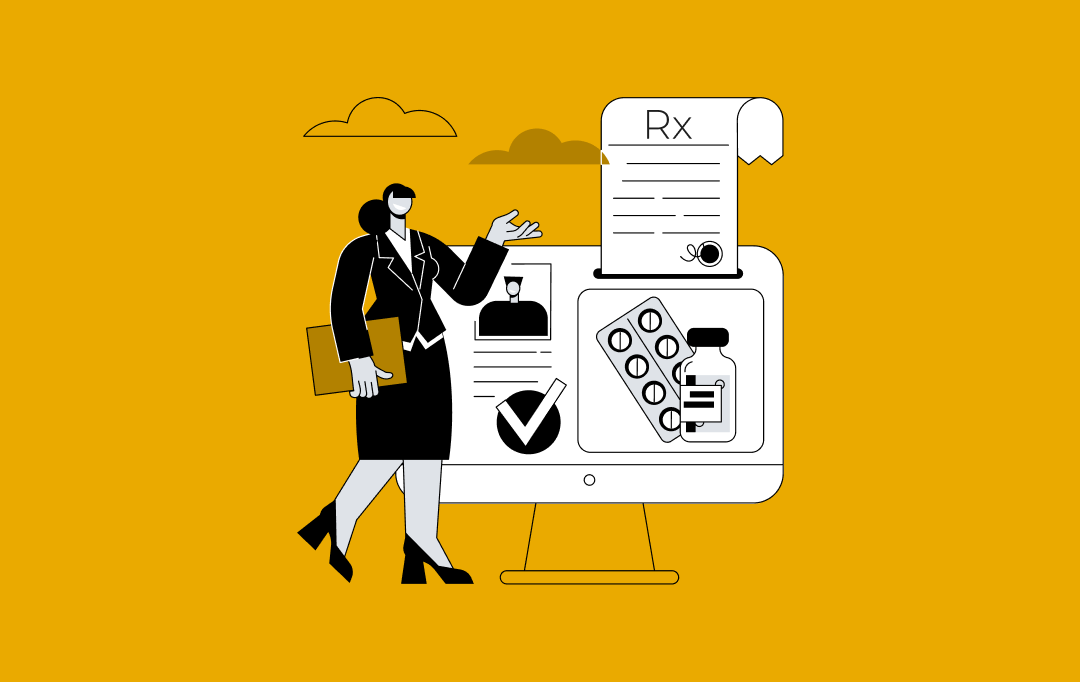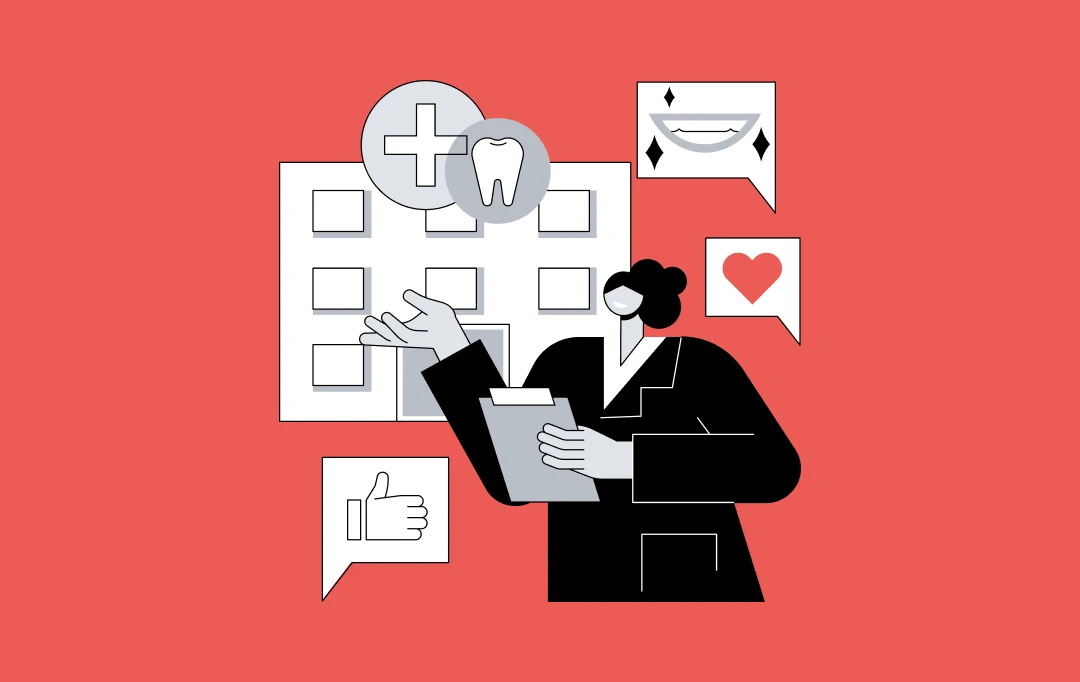- What is ERP in Healthcare?
- Role of ERP systems in Healthcare Business
- Applications and Benefits of Healthcare ERP Solutions
- 1. Easier access to medical records
- 2. Enhanced medical care with cloud and e-storage
- 3. Diminished errors and reduced operational cost
- 4. BI and strategic planning
- 5. Organization-wise integration
- 6. Improved industry compliance
- Types of Healthcare ERP Systems
- Key Innovative Features of Healthcare ERP System
- How Healthcare ERP Solutions Keeps Your Business Scalable
- How Can Appinventiv Help Your Healthcare Business with ERP Solutions?
- FAQs
Many innovative leaps in healthcare technology have not only expanded options for medical treatments but have also digitally transformed operational and clinical processes. Now, with improved technology and cost-effective medical solutions, healthcare businesses must streamline their internal information flow and communications to provide efficient care. This is where ERP in healthcare comes into play.
Healthcare ERP software solutions have gained broad acceptance due to robust features and their ability to offer high-grade patient care at low operational costs. Based on business process management software, ERP for hospitals helps businesses integrate various aspects of operations in one database, user interface, and application.
This is why the global Enterprise Resource Planning solutions market is forecasted to reach over $100.7 billion by 2025. It is also noteworthy that in comparison to other IT healthcare solutions such as medical app development, hardware devices, and data care systems, ERP solutions have a more consistent growth pattern signaling high demand growth.

Now, if you have decided to embrace digital transformation for your healthcare business, it is time to implement healthcare ERP solutions to fuel process innovation. Meanwhile, you can discover the ERP business needs for healthcare, use cases, and benefits of implementing ERP in your healthcare business here. Let’s begin:
What is ERP in Healthcare?
ERP or Enterprise Resource Planning system is a technological software solution consisting of modules that are designed for monitoring data and improving communication among departments.
Apart from this, ERP healthcare solutions help businesses with automating operations, breaking data silos, streamlining information, and making sustainable decisions based on insights. Now, let’s take a look at why you need ERP system solutions for your business.
Role of ERP systems in Healthcare Business
ERP for healthcare is beneficial when it comes to managing core business processes such as HR, finances, customer relationships, inventory, etc. Healthcare businesses usually grapple with the need to fulfill two primary objectives-
- Deliver quality care to patients
- Deliver quality care at a reduced cost
This is why medical institutions constantly require upgrading ERP systems to make patient care more accessible. The significant role of ERP for hospital management systems is to eliminate clinical errors and boost operations with productivity and aligned data analytics.
Here’s an image depicting top module features of ERP in healthcare covering major areas:

ERP systems for healthcare also help businesses with real-time patient needs, data, and test reports that ensure optimal outcomes. Moreover, streamlining various diagnostic systems, electronic medical records, and patient communication systems is the major ERP benefit for healthcare.
To get into specifics, here is a detailed overview of the benefits of ERP in healthcare.
Applications and Benefits of Healthcare ERP Solutions
The primary reason why your healthcare organization requires an ERP solution is beyond just clinical and administrative needs. Delivering top-notch care, internally and externally, along with cost control, improved results, and efficient performance, is what makes ERP solutions sustainable for healthcare. What more?

Here are the top six benefits of implementing healthcare ERP systems in your business:
1. Easier access to medical records
Imperatively healthcare staff, patients, and medical professionals must all have access to healthcare records whenever it’s needed in order to make appropriate operative decisions and make appointments.
Older software systems often fall short in this regard, but ERP implementation in healthcare addresses this issue by providing automated solutions that ensure critical data is accessible with a single click. This significant improvement directly enhances the patient experience, making it one of the most notable benefits of ERP in healthcare ecosystem.
It has been studied that the organizations that moved to ERPs or updated their existing ERPs exhibited distinctive productivity over other institutions. The significant burden of managing data post-pandemic was mitigated to a greater extent by ERP and hospitals.
Moreover, monitoring oxygen levels, blood pressure, body temperature, and oxygen levels and keeping such details updated via ERP systems has allowed quick assistance to patients.
2. Enhanced medical care with cloud and e-storage

Cloud ERP for healthcare gives remote information access to healthcare professionals, which directs that If the doctors are away, they can recommend medical advice based on updated patient data. Not to forget that robust ERP solutions for healthcare make critical patient information available across disparate systems.
3. Diminished errors and reduced operational cost
Healthcare businesses need to manage their finances efficiently. ERP software systems with accounting modules are designed for storing and recording all kinds of monetary transactions. Healthcare ERP systems are meant to manage and govern the end-to-end financial process by keeping track of expenses, income, and assets of your business.
Financial management system based on ERP can help you gain financial visibility and accounting information. ERP systems for hospitals are developed on advanced technologies such as AI analytics and Machine learning that can protect your confidential medical data from security threats.
4. BI and strategic planning
ERP systems are a valuable solution for making foolproof strategic plans and accessing accurate insights. Healthcare ERP solutions are also capable of measuring institutional healthcare performance. You can find information on budgeting, patient visits, requisitions, and more. Business Intelligence tools for healthcare help analyze data to identify areas of improvement.
Once the areas are determined, you can easily recognize and place the most effective strategies in place.
5. Organization-wise integration
One of the major roles of ERP in the healthcare industry is to streamline hospital operations by integrating various healthcare solutions and devices into a single, cohesive system. Using multiple healthcare solutions and devices to manage your hospital operations often requires challenging and expensive maintenance.
From financing to human resources, billing, and record keeping, the ERP system for healthcare keeps all your operations streamlined and stores data on a centralized database.
This also relieves you from the hassle of managing several systems and time-consuming data system collaborations. A unified central database makes information easily accessible to the staff and doctors.
Also Read- Resurrecting Patient Care With Legacy Systems in Healthcare
6. Improved industry compliance
Perhaps the most important industry that has to follow standard compliance protocols is healthcare. Non-compliance to health standards may not only subject your healthcare business to hefty fines and loss of reputation but also may lead to disastrous results for patients.
The first step toward healthcare industry compliance is to ensure that your operations are secure, transparent, and traceable. You can start by sticking to the legacy systems and obsolete record keeping methods, passing audits, and proactively upgrading software systems.
ERP for healthcare makes it easy to get your requisite documents whenever you need them, regardless of your location.
After looking into the major benefits of ERP in healthcare ecosystem, let’s move ahead and check out the various types of healthcare ERP systems businesses can integrate in their daily operations.
Types of Healthcare ERP Systems
ERP systems have evolved significantly and now come in various forms, categorized based on their implementation method and functional scope. Currently, they are generally classified into three types according to their implementation approach:
On-Premise ERP
Tailored for large healthcare institutions, on-premise ERP systems are installed directly on the organization’s own servers. They provide extensive customization and control but involve substantial upfront costs and ongoing maintenance.
Cloud ERP
Best for small healthcare institutions, cloud ERP systems are hosted on remote servers and accessed via the internet. They offer scalability, lower initial costs, and simplified maintenance, making them an affordable option for smaller organizations.
Hybrid ERP
Designed for developing healthcare institutions, hybrid ERP systems blend on-premise and cloud elements. This approach combines the advantages of cloud flexibility with the benefits of local control and customization.
Key Innovative Features of Healthcare ERP System
Healthcare ERP solutions are designed to streamline and enhance the operations of healthcare organizations. These systems integrate various functions into a unified platform, improving efficiency, reducing errors, and ensuring better patient care. Let’s have a look at the key features of healthcare ERP systems.
Integration Capabilities: Facilitates data exchange and system interoperability through APIs and connections with other healthcare systems.
Patient Management: Organizes patient records, schedules appointments, and facilitates communication between patients and healthcare staff.
Data Analytics and Reporting: Offers data analysis, tracks key performance indicators, and uses predictive insights for better decision-making.
Financial Management: Oversees billing, revenue cycle activities, and financial reporting to ensure accurate and efficient financial operations.
Clinical Management: Manages clinical orders, coordinates patient care, and provides decision support tools for enhanced clinical outcomes.
Administrative and Operational Support: Streamlines administrative tasks and manages documentation to boost overall efficiency and support operational processes.
Supply Chain Management: Manages inventory, procurement, and logistics to ensure timely and efficient delivery of medical supplies and equipment.
Human Resources: Handles staff scheduling, payroll, and training to manage human resources and maintain compliance effectively.
How Healthcare ERP Solutions Keeps Your Business Scalable
Gartner forecasted that by the end of 2022, the demands for product service adaptability and agility would position elasticity. This is a huge benefit for healthcare since the top three criteria for more than 75% of enterprise technology and service purchases enter this category.
No industry requires elasticity as much as healthcare, especially when it comes to federal and state regulations for care change over time.
Another factor is that constantly fluctuating reimbursement rates and regulations demand software and systems that can keep up with your medical process without losing accuracy.
Over time, the healthcare industry has suffered from inefficiencies in technical procedures and quality care. This leads to inaccurate operational data, vulnerability to security breaches, and typically fewer insights on cross-platform application platforms.
The universal solution for all such problems is ERP for healthcare. ERP solutions are purpose-built to alleviate new operational burdens, helping you and your medical staff with smoother workflow, more revenue, and predictability.
Moreover, with ERP integration in healthcare, your business will have a constant infrastructure in place to meet existing and future healthcare trends.
You might also want to explore ERP software development cost for your healthcare business
How Can Appinventiv Help Your Healthcare Business with ERP Solutions?
Appinventiv is a software development company delivering world-class healthcare software development services to enhance medical care. We are known for enabling fast-paced medical ecosystems with advanced healthcare application development solutions.
Our rich suite of healthcare services includes:
- ERP integration
- Telehealth apps
- EHR (Electronic Health Record)
- mPrescription
- Process management
- Patient engagement software
- Medical insurance claim
- Laboratory management
- Patient gateway
- Lifestyle tracking and more
Reach out to our healthcare experts to get started now!
FAQs
Q. In what ways does ERP improve healthcare patient care?
A. By facilitating prompt access to precise patient records, streamlining appointment scheduling, enhancing staff communication, and creating a more organized and successful patient experience, ERP helps improve patient care.
Q. Which modules are usually included in an ERP for healthcare?
A. HR, finances, inventory management, billing, and patient management are typical ERP modules for the healthcare industry. Together, these modules simplify and combine various facets of healthcare operations.
Q. Can ERP be customized for unique healthcare needs?
A. Yes, ERP can be tailored to the unique needs of healthcare organizations. This guarantees that the ERP solution is precisely in line with the operational structures, legal regulations, and workflows unique to the healthcare environment. Customization improves the ERP’s adaptability by allowing it to handle specific compliance requirements, integrate with current systems, and accommodate customized processes in patient care.
Because of this flexibility, healthcare providers can more effectively optimize their operations, which leads to a more streamlined and customized experience that caters to the unique needs of the healthcare setting.



How Much Does it Cost to Build a Custom Dental Practice Management Software?
In recent years, dental practices have shifted away from manual, paper-based systems and embraced advanced software solutions. This change boosts efficiency, enhances patient experiences, and improves data management. While dealing with patient data, dentistry has ditched old-school methods like physical charts, appointment books, and manual billing. They’ve leveled up with a high-tech data handling &…

EMR Integration in Healthcare Systems - Benefits, Features, Process, Costs
EMR integration, having proved its worth in the healthcare space with improved workflows, better patient engagements, and lowered operational costs has built itself a projected market share of USD 20.7 billion. Eventhough a range of hospitals swear upon the benefits EMR system integration has garnered them, the adoption level digital healthcare industry anticipated has still…












